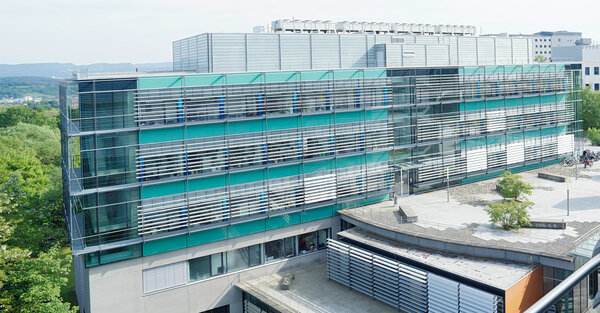The results of this study suggest that Medin aggregates lead to a loss of elasticity in blood vessels – the resulting reduction in blood flow, in turn, might contribute to the development of vascular dementia. This is supported by findings from independent studies showing that older people with vascular dementia have more Medin aggregates in their brain vessels than cognitively healthy patients of a similar age. If further research confirms the role of Medin aggregates in the development of this dementia type, a possible therapy could be to dissolve the plaques or prevent their development.
The results have been published in the scientific journal PNAS. Experts from Frankfurt, Munich, Liverpool and London were also involved in this research.
For more information see the press release of the German Center for Neurodegenerative Diseases (DZNE):
https://www.dzne.de/en/news/press-releases/press/lumpy-proteins-stiffen-blood-vessels-of-the-brain
Original Publication:
Karoline Degenhardt, Jessica Wagner et al. Medin aggregation causes cerebrovascular dysfunction in aging wildtype mice. PNAS first published September 8, 2020.
https://doi.org/10.1073/pnas.2011133117

Copyright: Ingo Rappers / HIH
Contact:
Dr. Jonas Neher
Hertie Institute for Clinical Brain Research
and German Centre for Neurodegenerative Diseases (DZNE) e.V.
Otfried Müller Str. 23
72076 Tübingen
Germany
phone: +49 7071 9254351
email: jonas.neher@dzne.de
www.dzne.de/neher
Communications
Dr. Mareike Kardinal (on parental leave)
Director of Communications
Hertie Institute for Clinical Brain Research
Otfried-Müller-Str. 27
72076 Tübingen
Stand-in:
Dr. Hildegard Kaulen
Karlsruher Str. 8
65205 Wiesbaden
Tel: 06122 52718
h.k[at]kaulen-wissenschaft.de









